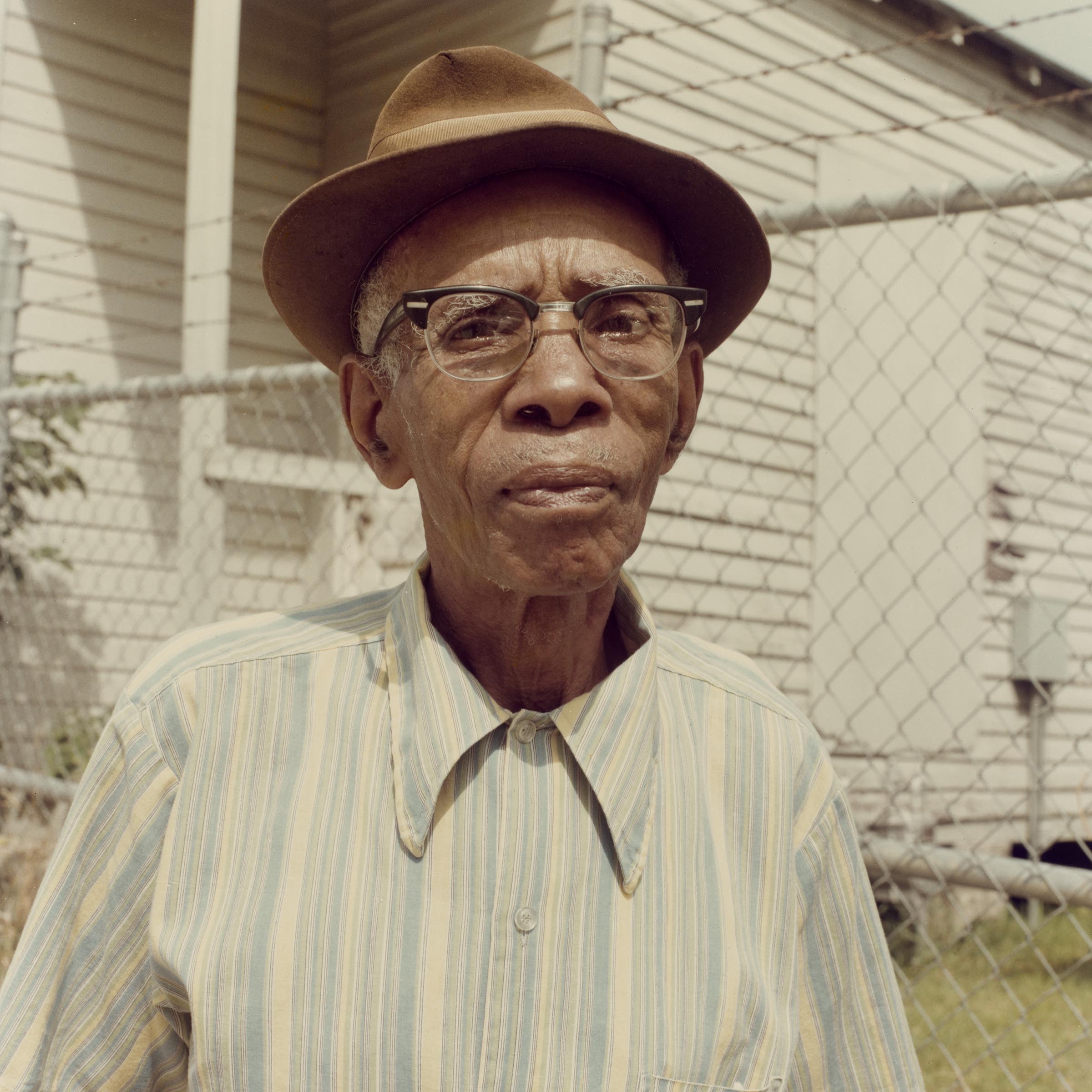Photos of Houston's famed Fourth Ward in the 1980s
- Text by Miss Rosen
- Photography by Elbert D. Howze

A few months after Elbert D. Howze died in 2015, his widow Barbara Howze paid a visit to the Houston Centre for Photography. The photographer had requested that his archive was donated to the centre, and she wanted to honour his final wishes.
Director and curator Ashlyn Davis remembers Mrs. Howze’s distress after learning that the Centre was not a collecting institution. “She said, ‘But I have a whole trunk full!’ So we went and got six portfolio boxes with hundreds of photos,” Davis recalls.
That summer, Davis went through the boxes and discovered a spiral-bound maquette for a photo book Howze had titled Fourth Ward. The book featured a collection of portraits made 1985 of the residents of Freedmen’s Town, a historically black community founded in 1866 by people finally liberated from the shackles of chattel slavery.
Rather than move north, residents built at least 558 settlements that formed the heart and soul of black Houston. Originally built on swamps no one wanted, Freedmen’s Town occupied prime real estate in the centre of the city – and in due time began attracting developers and gentrifiers who wanted a stronghold downtown as the city began to rapidly expand during the 20th century.


Among Howze’s collection were newspaper clippings from the summer of 1984 that described the ongoing battle for control over the neighbourhood. Understanding the rising threat, Howze set out to create a portrait of the people who called the Fourth Ward their home, collecting signed and dated model releases and identifying their occupation in a larger project he titled Motherward, which Davis believes has never been shown — until now.
In the new exhibition, Motherward, 1985: Photographs by Elbert Howze, we see Freedmen’s Town through Howze’s eyes: the story of a community, one person at a time. It is a story that continues to this very day, as visitors to the gallery recognise family members and homes in Howze’s photographs.
When the exhibition concludes, Howze’s collection will be donated to the African-American Library at the Gregory School, the first school for free Black children in Houston, where it will be accessible to the public.
At the same time, the fight to preserve Freedmen’s Town soldiers on, as the city is petitioning to have the Fourth Ward listed as a UNESCO World Heritage site as part of the Slave Route Project — in recognition of the city bricks that were laid in accordance with West African traditions.
“This is a story that needs to be told right now,” Davis says. “It has not ended.”










Motherward, 1985: Photographs by Elbert Howze is on view at the Houston Center for Photography through July 7, 2019.
Follow Miss Rosen on Twitter.
Enjoyed this article? Like Huck on Facebook or follow us on Twitter.
You might like

Largest-Ever Display of UK AIDS Memorial Quilt Opens at Tate Modern
Grief Made Visible — Comprising hundreds of panels made by lovers, friends and chosen family, the UK AIDS Memorial Quilt returns in full for the first time since 1994 – a testament to grief, friendship and the ongoing fight against HIV stigma.
Written by: Ella Glossop

In Medellín’s alleys and side streets, football’s founding spirit shines
Street Spirit — Granted two weeks of unfettered access, photographer Tom Ringsby captures the warmth and DIY essence of the Colombian city’s grassroots street football scene.
Written by: Isaac Muk

Remembering New York’s ’90s gay scene via its vibrant nightclub flyers
Getting In — After coming out in his 20s, David Kennerley became a fixture on the city’s queer scene, while pocketing invites that he picked up along the way. His latest book dives into his rich archive.
Written by: Miss Rosen

On Alexander Skarsgård’s trousers, The Rehearsal, and the importance of weirdos
Freaks and Finances — In the May edition of our monthly culture newsletter, columnist Emma Garland reflects on the Swedish actor’s Cannes look, Nathan Fielder’s wild ambition, and Jafaican.
Written by: Emma Garland

Why Katy Perry’s space flight was one giant flop for mankind
Galactic girlbossing — In a widely-panned, 11-minute trip to the edge of the earth’s atmosphere, the ‘Women’s World’ singer joined an all-female space crew in an expensive vanity advert for Jeff Bezos’ Blue Origin. Newsletter columnist Emma Garland explains its apocalypse indicating signs.
Written by: Emma Garland

We are all Mia Khalifa
How humour, therapy and community help Huck's latest cover star control her narrative.
Written by: Alya Mooro

